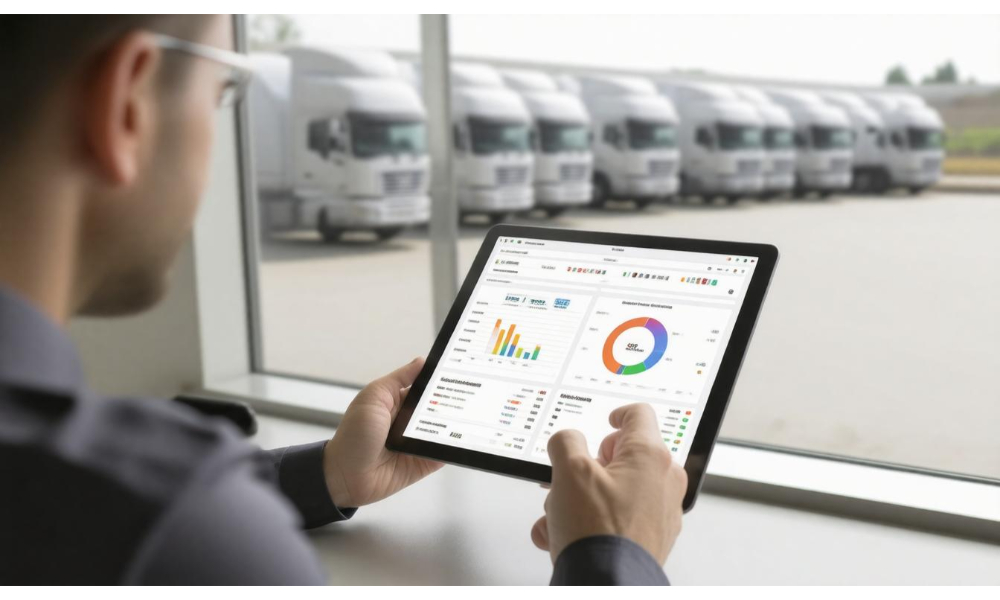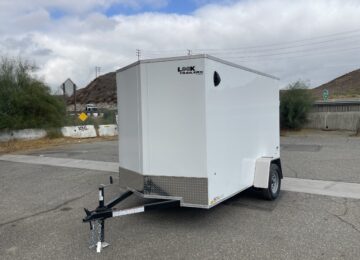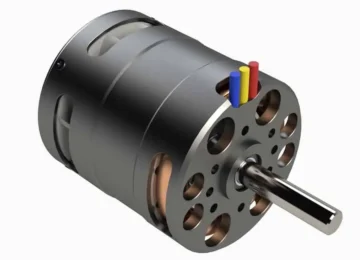Managing a fleet of vehicles can feel like trying to keep track of a dozen moving parts all at once. With fuel costs rising and the complexities of daily operations increasing, finding ways to save money and streamline processes becomes vital for any fleet operator. That’s where fuel cards come into play. These handy tools are not just a way to pay for gas; they’re like having a personal assistant helping you keep an eye on every drop of fuel and each dime spent. If you’re curious about how these cards can make your life easier and boost the efficiency of your fleet, keep reading. You might be surprised at the benefits they offer!
Fuel cards offer growing fleets enhanced cost control, convenience, and streamlined operations through features such as real-time transaction tracking and customizable purchase limits. These cards not only simplify expense management but also provide insights that support better budgeting decisions, which is crucial for fleet operators as their needs evolve. Many companies also pair these innovations with regular safety initiatives like a Traffic Control Safety Toolbox Talk to ensure both fiscal and operational vigilance are upheld.
Why Fuel Cards Are Essential for Fleets
Fuel cards are not just payment methods; they represent a comprehensive approach to managing vehicle fleets efficiently. At their core, fuel cards minimize costs and simplify administrative tasks, creating an ecosystem where fleet management can thrive even under economic pressures. By utilizing fuel cards, fleet operators can realize significant savings-on average, users save between 10% to 15% on fuel costs compared to traditional payment methods. This substantial reduction in spending is mainly due to better tracking and tighter spending controls offered by these cards.
One of the primary advantages of fuel cards lies in their ability to provide unparalleled transparency in fuel-related expenses.
Key Advantages
Imagine having access to a dashboard that displays real-time data on your fleet’s fuel consumption. Fuel cards empower you with this capability, allowing managers to set custom purchase limits and monitor transactions closely. With tailored insights into individual driver behavior and fueling patterns, businesses can quickly identify discrepancies and address inefficiencies. Automated transaction reports generated through digital platforms eliminate cumbersome paperwork while providing valuable clarity on spending habits.
Notably, a company like Joe’s Delivery Service benefited immensely from implementing a fleet card system; they experienced a 20% improvement in fuel expense tracking. Such numbers reflect the tangible impact these tools can have on operational efficiency.
But what makes these fuel cards even more appealing is the inclusion of advanced technology that complements their basic functionalities.
Data Analytics for Efficiency
The integration of data analytics takes the utility of fuel cards to an entirely new level. Fleet managers no longer need to rely solely on intuition; they can now make informed choices based on actual usage statistics. Imagine a scenario where one company detects an underperforming vehicle merely by tracking its fuel usage over time. With such actionable insights, it becomes possible to optimize routes or investigate mechanical issues before they escalate into costly repairs.
This layer of detail not only saves money but also enhances accountability among drivers. Real-time visibility allows management to enforce appropriate fueling practices while minimizing unauthorized purchases. In fact, studies indicate that around 60% of companies using fuel cards reported enhanced driver accountability, identifying unauthorized purchases before they could escalate into more significant issues.
Thus, the essence of using fuel cards transcends mere convenience; it establishes a framework for smarter financial management within fleets.
Adopting fuel cards embraces efficiency and innovation in fleet management. Through careful monitoring enabled by these tools, organizations can save money, streamline operations, reduce administrative burdens, and promote accountability-all essential facets in today’s competitive landscape.
With enhanced oversight on expenditures established by these systems, let’s now consider how these advancements translate into an improved experience for drivers.
Convenience for Drivers
Fuel cards dramatically simplify the lives of drivers and enhance fleet operations. One of the most notable advantages is the ability to use a range of fuel stations without worrying about acceptance-this means no more scrambling for cash or hoping a particular location accepts your card. With options like the Shell Fleet Navigator Card available at approximately 95% of U.S. fueling stations, drivers can easily locate nearby places to refuel, minimizing downtime and ensuring they stay on schedule.
In fact, around 70% of drivers reported that using fuel cards reduced the time spent at fuel stations by eliminating the need for cash or personal credit cards. This not only enhances their experience but also keeps them on the road longer, further increasing productivity within fleets. Less time spent at gas pumps means more time spent completing deliveries or servicing clients.
Furthermore, the administrative processes related to managing fuel expenses become a breeze with fuel cards.
Fuel cards generate automatic reports detailing spending, making tracking fuel expenses and managing budgets straightforward. This real-time visibility is a game changer for operators who used to deal with stacks of paper receipts and cumbersome reimbursement requests. Now, drivers simply present their card, fill up, and get back on the road-all while leaving the paperwork behind. As John from Worldwide Logistics pointed out, “Having a fuel card means I no longer worry about keeping track of paper receipts or spending out of pocket.”
The convenience extends beyond just refueling; fuel cards often incorporate advanced features that allow fleet managers to set purchase limits tailored to each driver’s needs. This means managers can control spending without micromanaging every transaction, ensuring compliance while maintaining driver satisfaction. A driver knows exactly how much they can spend in a given period simply by looking at their card limits.
As a result, this modern approach to fleet fueling helps create an environment where drivers feel empowered and trusted to make responsible decisions without unnecessary hassle.
This seamless integration of technology into everyday practices shapes how drivers handle transactions and enhances overall fleet efficiency as well.
By removing barriers at the fuel station and streamlining daily operations-fuel cards provide an essential service that contributes significantly to maximizing productivity for both drivers and fleet managers alike. Knowing they can access fuel quickly, track expenses effortlessly, and adhere to management protocols easily-drivers are set up for success on every trip they take.
As we explore further, understanding how to effectively oversee these important financial aspects becomes crucial for any operation striving for excellence.
Managing Fuel Expenses
Managing fuel expenses is crucial for keeping your fleet’s finances in check. With rising fuel prices, effective management becomes even more important. Here’s where fuel cards come into play: they don’t merely act as a payment method but transform how expenses are monitored and controlled.
Think about it this way: every time a vehicle fills up at the pump, there’s a flurry of data that could either be lost in stacks of paper receipts or efficiently logged through a digital system. Fuel cards provide detailed, real-time reporting, which means you have instant access to transaction data right at your fingertips. This ability to track spending almost immediately empowers fleet managers to make informed decisions and take corrective actions swiftly.
A survey done by Fuel Management Weekly discovered that companies using fuel cards had 30% fewer discrepancies in their monthly fuel expense reports compared to those managing traditional paper-based tracking systems. That’s significant!
So, how exactly do these cards help? It all comes down to improving efficiency through automation.
Paperless Transactions
Imagine having an entire month’s worth of receipts painstakingly organized and then realizing you can’t find the tiny one from that random gas station. It can feel overwhelming, right? Fortunately, fuel cards help eliminate such headaches by allowing purchases without the hassle of manual receipt entries. By automating the record-keeping features, fleet managers can quickly reconcile expenses against transactions recorded in their account.
This paperless method not only boosts accuracy but also reduces administrative tasks typically associated with manual entry, allowing your team members to focus on more strategic efforts instead. Moreover, it helps in identifying spending patterns, anomalies or inefficiencies that might require attention.
For example, suppose a particular vehicle consistently shows higher fuel spend than others. With the analytics provided by the fuel card system, chasing down potential reasons-be it inefficient routing or unauthorized use-becomes much simpler.
Furthermore, this control gives managers a clearer picture of their overall budget and assists in planning future expenditures. Essentially, integrating a fuel card system isn’t just about immediate savings; it’s about paving the way for long-term financial health for your fleet.
Adopting advanced solutions like fuel cards signifies not only practicality but also foresight, paving the way for enhanced oversight and management of fuel purchases.
Enhancing Fuel Purchase Control
One of the standout features of fuel cards lies in their ability to enforce strict spending policies. By allowing fleet managers to set spending limits, these cards help ensure that drivers only purchase what is necessary, mitigating any financial risk associated with unauthorized transactions. Imagine a driver at the pump, knowing upfront how much they can spend; it removes the guesswork and builds accountability. This aspect of fuel management fosters responsible usage while also containing costs-a win-win situation.
These control measures not only prevent fraud but also optimize operational budgets.
A good illustration of this comes from companies that implement fuel-type restrictions. For instance, if a fleet utilizes only diesel-powered vehicles, card settings can ensure that gasoline purchases are prohibited. Such a measure streamlines operations and reduces errors, ultimately saving significant amounts of money lost through mismanagement. Beyond preventing wrong purchases, it reinforces operational efficiency, keeping fleets focused and functional.
Additionally, fueling schedules can be reinforced through time and day restrictions. This feature ensures that purchases can only occur during specified hours-say, during regular business hours-thus obstructing any attempts at misuse outside those times. Imagine a scenario where unauthorized refueling occurs after hours. With time restrictions in place, the potential for theft or improper usage greatly diminishes.
Furthermore, restricting fuel purchases to approved locations adds another layer of security and efficiency. Choosing where drivers can fill up narrows down options to trusted merchants or contracts with preferred suppliers like or , benefiting from better pricing agreements and rebates. By managing fuel purchasing locations effectively, companies can harness discounts tied to loyalty programs offered by their selected providers-saving even more on purchasing costs.
The cumulative effect of these strategies contributes positively to budget management. Fleet operators can generate insightful reports that outline expenditure patterns using digital platforms linked to their fuel cards. This level of visibility into operations empowers managers to make informed decisions regarding budgeting and forecasting for future expenses related to fuel consumption. Essentially, with fuel cards in hand, fleet managers are equipped with tools that enhance understanding and control over expenditures that were once obscure.
Studies reveal about 75% of fleets report improved control over their fuel spending after implementing these cards-an impressive leap towards financial stability in challenging economic climates.
The blend of stringent controls combined with superior tracking features makes fuel cards an indispensable tool for managing fleet expenses effectively while providing peace of mind against unwanted discrepancies or inefficiencies in purchase behavior.
As we explore further dimensions of operational efficiency, let’s consider how these mechanisms reinforce not just cost control but also add crucial layers of security and safety.
Boosting Security and Safety











